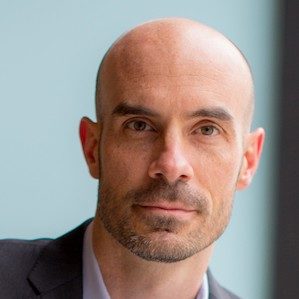
Dr. Joseph G. Allen is an associate professor at the Harvard T.H. Chan School of Public Health, director of Harvard’s Healthy Buildings Program, and co-author of Healthy Buildings: How Indoor Spaces Can Make You Sick—or Keep You Well.
Dr. Allen serves on Harvard’s Presidential Committee on Sustainability, he keynoted the White House’s first-ever Indoor Air Quality Summit, and during the COVID-19 pandemic, served as Commissioner of The Lancet COVID-19 Commission and Chair of its Safe Work, Safe Schools, and Safe Travel Task Force.
In 2023, Allen was featured on the 60 Minutes episode, The Air We Breathe, spotlighting the value of healthy indoor air quality for virus mitigation. He has authored over 100 peer-reviewed scientific papers and regularly contributes to the New York Times, Washington Post, and Harvard Business Review.
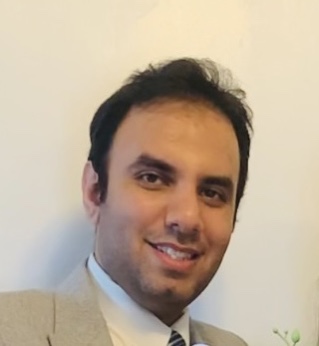
Parham Azimi’s research focuses on the fate, transport, and control of indoor aerosols of indoor and ambient origin, the chronic health impacts of fine and ultrafine particles, and the transmission of infectious diseases. Currently, he is evaluating the transmission risk of infectious respiratory diseases, including influenza, measles, and Covid-19, in various indoor environments such as cruise ships, schools, and healthcare facilities using a newly-developed mechanistic model. In addition, he is working on the impacts of flood and building characteristics on mold growth and occupational respiratory health in residential buildings.
Parham joined the Healthy Buildings Program in 2019 after two years of working as a research associate in the Department of Civil, Architectural, and Environmental Engineering at the Illinois Institute of Technology, where he also received his Ph.D. in Environmental Engineering in 2016. He earned his M.Sc. degree in Environmental Engineering in 2012 and a B.Sc. degree in Civil Engineering in 2010, both from the Department of Civil Engineering at Sharif University of Technology, Tehran, Iran.
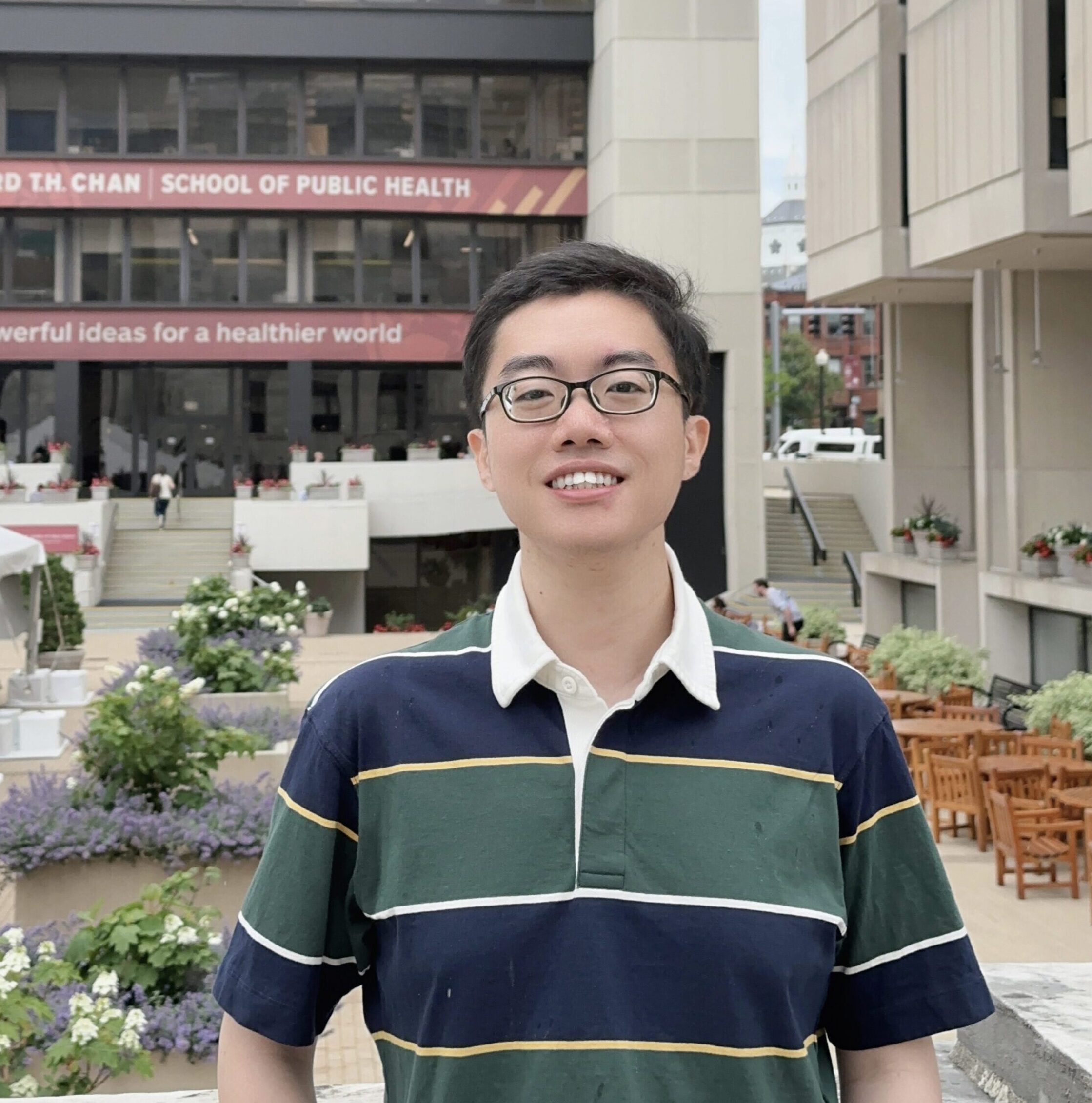
Gen Pei’s research focuses on building science, indoor air quality, infectious disease transmission, building materials, and energy-efficient and resilient buildings. Currently, he is working on developing effective interventions to mitigate infectious diseases transmission in buildings, and quantifying the health and climate benefits of energy-saving measures in buildings. His doctoral research established a measurement and Computational Fluid Dynamics (CFD) modeling framework to understand pollutant transport, fate, chemical reaction, and control in indoor environments. The goal of his research is to advance our knowledge of developing healthy, smart, sustainable, and resilient buildings.
Gen holds a Ph.D. and an M.Sc. in Architectural Engineering at Pennsylvania State University, and a B.Sc. in Building Environment and Energy Engineering at Xi’an Jiaotong University.

Lauren Ferguson is a Postdoctoral Research Fellow with the Healthy Buildings Program. Lauren holds a PhD in Environmental Engineering from University College London (UCL), UK, where she built a personal exposure model which estimated childhood exposure to PM2.5 for 1.3 million individuals in Greater London. The tool can be used to assess a number of “soft” (for example, behavioral modifications) and “hard” (for example, building interventions) policy interventions on childhood exposure to air pollution. Lauren’s interests lie in using building physics and statistical models to assess population-level exposures to indoor environmental hazards, such as heat and air pollution, and understanding how these exposures lead to health impacts and inequalities. In addition to her doctoral research, she has applied these techniques to study population exposure to household air pollution in Nairobi’s informal settlements and predict the extent of indoor overheating the UK housing stock may face under future climate scenarios. The goal of her work with the Healthy Buildings Program is to continue her research into indoor heat, where she will be building a US-based housing stock model.
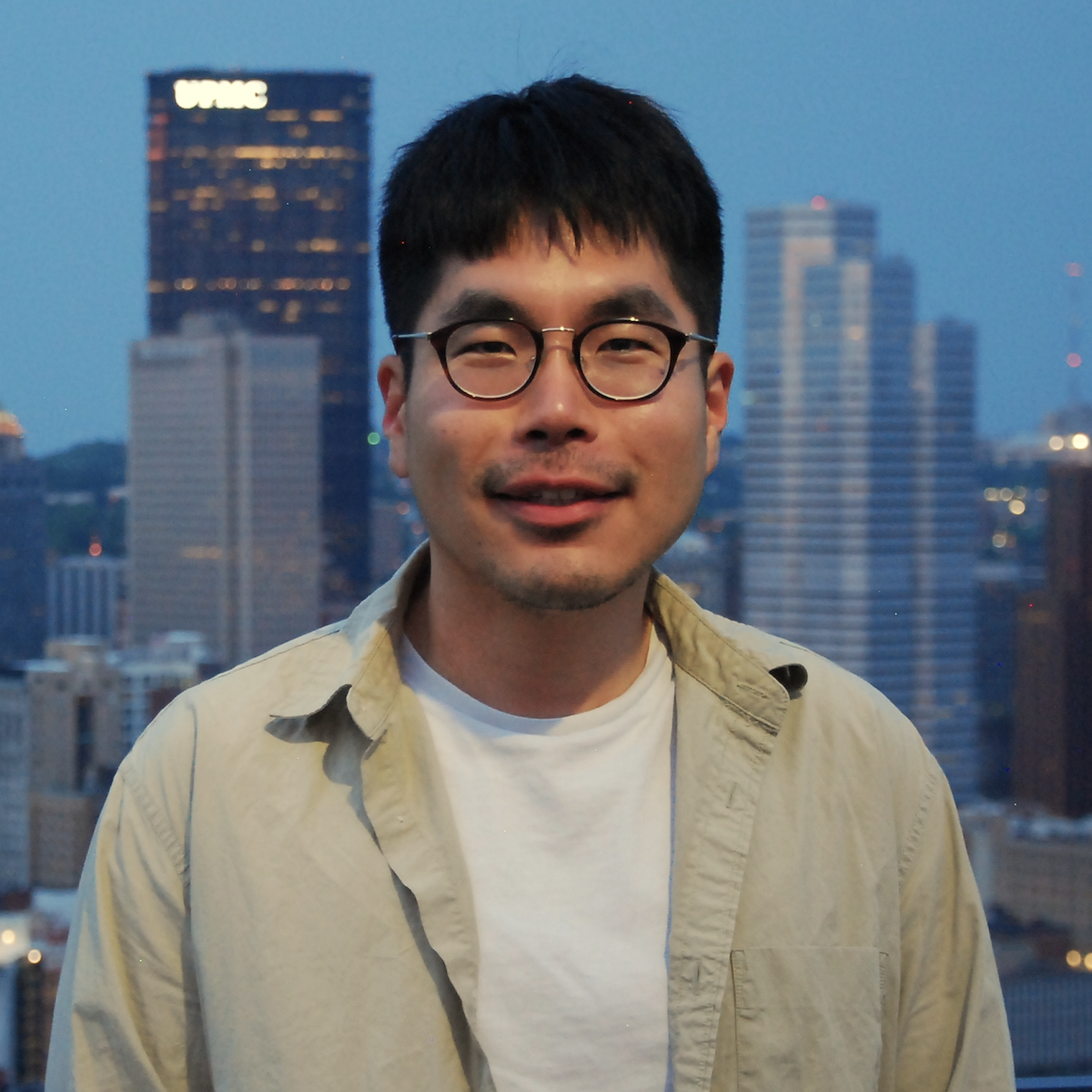
Seongjun Park is a Postdoctoral Research Fellow with the Healthy Buildings Program. His research focuses on building science, indoor air quality, low-cost particle sensors, residential ventilation systems, indoor chemistry, and the control of infectious diseases. During his PhD, he worked on controlling airborne diseases using germicidal UV (GUV) systems and studied the formation of secondary contaminants associated with GUV disinfection using Computational Fluid Dynamics (CFD). Before his PhD program, Seongjun worked as a building engineer at one of Korea’s leading sustainable building consulting firms, participating in over 100 projects. His responsibilities included stack effect analysis, indoor thermal comfort simulation, and testing, adjusting, and balancing (TAB).
Seongjun holds a Ph.D. in Architectural Engineering at Pennsylvania State University, an M.Sc. in Architecture and Architectural Engineering at Seoul National University, and a B.Sc. in Architectural Engineering at Yonsei University.
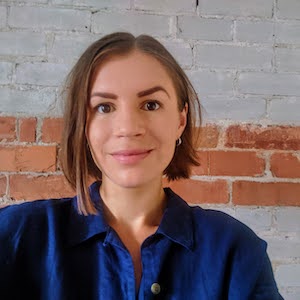
Sandra is a PhD candidate in the Population Health Sciences program at Harvard’s T.H. Chan School of Public Health. Her research interests center on indoor air quality and building design strategies that improve occupant health outcomes. Sandra’s past research experience includes investigating the influence of residential ventilation factors on the severity of asthma symptoms in children as part of the U.S. Department of Housing and Urban Development’s Healthy Homes Program, as well as two projects under the Alfred P. Sloan Foundation’s Microbiology of the Built Environment Program, which include exploring the effects of indoor environmental factors on the progression of microbial communities in a new hospital and examining the relationship between indoor moisture and fungal growth on building materials.
Before coming to Harvard, Sandra worked in the sustainable building design industry as an engineering consultant while also developing and delivering education through the University of Toronto, the Canada Green Building Council, and the International Well Building Institute. Sandra holds a Bachelor’s and Master’s of Applied Science in Civil Engineering from the University of Toronto.
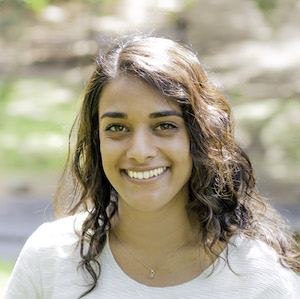
Shivani is a PhD candidate in Population Health Sciences in the Department of Environmental Health at the Harvard T.H. Chan School of Public Health and has been a member of the Healthy Buildings Team for the past four years. Her interests center on leveraging translational research on healthy building strategies—cutting across air quality, material health, and energy efficiency—to bridge the existing gap between communities, private organizations, and government and ultimately create healthier physical and social environments for people to live, work, learn, and play.
She earned her MS in Environmental Health at the Harvard T.H. Chan School of Public Health and her BA in Chemistry and Health & Societies at Haverford College.
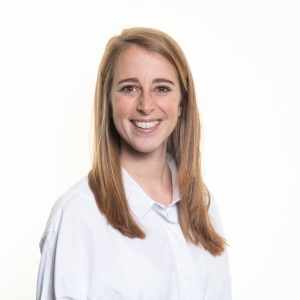
Danielle von Rechenberg-Paulsson is the Communications Manager with the Healthy Buildings Program at Harvard T.H. Chan School of Public Health. She is a purpose-driven communicator with diverse experience in international corporate and agency environments.
Danielle is a strategic project leader with a strong passion to create shared value and make a difference to people and the planet. Within the Healthy Buildings program, her task is to create awareness for the team’s research and engage diverse stakeholders through inspiring stories and creative forms of communication.
Danielle earned her MA in Business at St. Gallen University in Switzerland and holds a BA in Communications from the University of Zurich, Switzerland. Furthermore, she successfully completed a Graduate Certificate in Corporate Sustainability and Innovation at the Harvard Extension School.

Her research focuses on the assessment of hazardous emissions such as aldehydes and methylglyoxal from electronic cigarettes, evaluating the effectiveness of infection control strategies in indoor environments using low-cost sensors, and mold growth assessment in submerged residential buildings after hurricanes and other catastrophic events. Currently, she is monitoring the indoor air quality (IAQ) and effectiveness of ventilation and filtration systems in several healthcare facilities in Boston, MA and assessing mold growth in residential buildings in New Orleans, LA and Orlando, FL after Hurricane Ida and Ian.
Zahra holds a B.Sc. in civil engineering and an M.Sc. in structural engineering. Her graduate research work was focused on applications of artificial intelligence techniques in predicting building characteristics. She also has a background in indoor environmental engineering. Before joining the for-Health team, Zahra worked as an indoor air consultant at Indoor Science in Chicago, IL.

Jose Vallarino is a project engineer in the Department of Environmental Health at the Harvard T.H. Chan School of Public Health. He has over 25 years’ experience managing exposure studies focused on indoor and ambient environmental air quality. He has collaborated in research projects in the US, Africa, Asia and Europe. He, provides oversight of sampling protocols, designs monitoring platforms, and serves as the QA officer for several HSPH research center grants. He also provides guidance on research administration in areas of Human Subjects, Data Use Agreements and Data Security.

Kate is a Master’s candidate at the Boston University School of Public Health, studying Environmental and Women and Children’s Health. She joined the team in 2024 after finishing her undergraduate degree in History with minors in Biology and Deaf Studies, also at Boston University. Kate is particularly interested in women’s health equity after volunteering in the Boston area for many years. She intends to pursue a career in both medicine and public health.